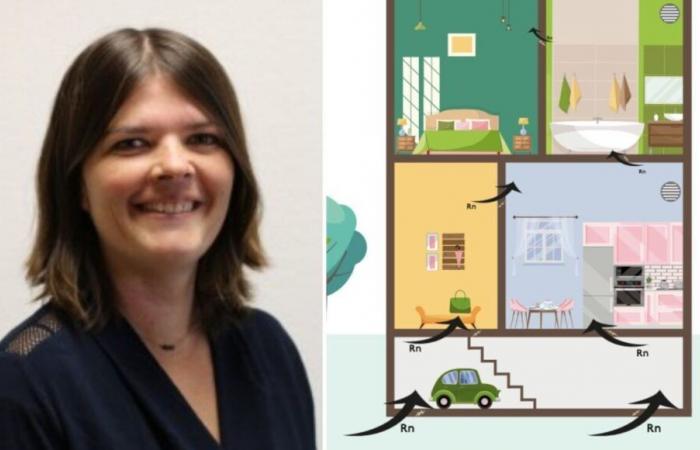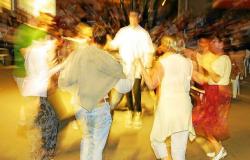Par
Editorial Flers
Published on
Jan 13, 2025 at 12:27 p.m.
Colorless, odorless, invisible, le radon is a gas that can enter homes incognito if you are not careful.
It is not completely harmless since it is a radioactive gas and that it is “recognized as a definite pulmonary carcinogen for humans” and the second cause of lung cancer after tobacco…
Why is Orne in the top ranks?
We understand that it is important to know more about how it spreads and how to protect your home against its intrusion. Orne, in the west of the country, is more exposed due to the nature of its soil.
In fact, these are the granite lands and rich in uranium which are the most concerned: therefore Brittany, followed closely by the tip of Cotentin, the English Channel, the west of Calvados on the edge of the Armorican massif, and therefore the Orne.
Bérengère Ledunois, engineer at the ARS, is on her 4th information meeting in La Ferrière-aux-Étangs after Athis-de-l’Orne in 2021, Briouze in 2022 and La Ferté-Macé in 2023.
This 4th meeting concerns the populations of Dompierre, La Coulonche, Saint-André-de-Messei and La Ferrière.
This young engineer, coordinator of the Interior Environment functional unit of ARS Normandy, works in close collaboration with Valérie Daumail of the CPIE, responsible for leading the action and Séverine Gouault, coordinator of the Local Health Contract of Flers agglo : “There is good consideration of the interests of the environmental health in this territory,” she says happily.
How to combat radon in your home?
The primary objective is therefore to reveal the existence of this gas and its little-known dangerousness, to point out how it rises in buildings when the floors are not waterproof or when they are made of clay.
-It informs about the good practices : systematic ventilation of the home for at least 10 minutes per day in all seasons.
Two terraced houses in an area with identical radon potential will not present the same risks depending on the lifestyleoccupants.
A kit to gauge risks
At the end of the meeting, participants each received a kit with a notice explicative a dosimeter to be installed in the living room and a special envelope to send the test after two months of exposure in the home.
The results will be analyzed by specialists and communicated to interested parties: three months are necessary.
“We invite communities who want to get involved in local actions to awarenessto get closer to ARS Normandie”, she concludes by reminding that the information leaflet can be downloaded from the site.
ARS Normandy website: https://www.normandie.ars.sante.fr/le-radon-1
Follow all the news from your favorite cities and media by subscribing to Mon Actu.






